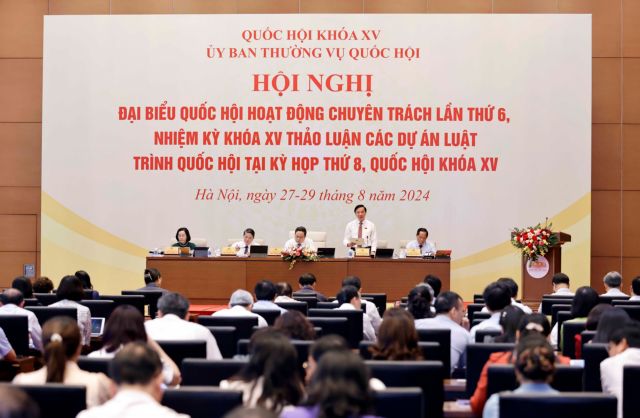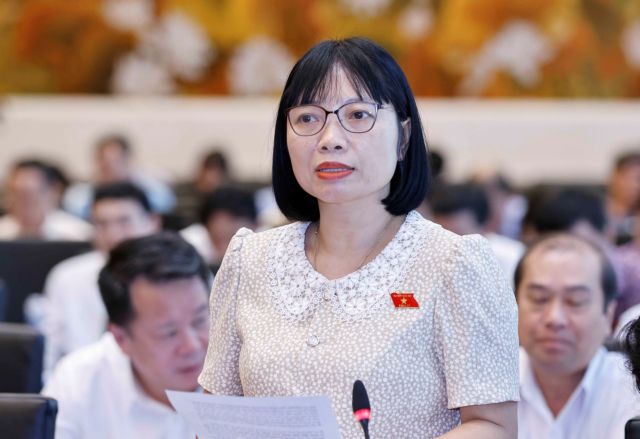▌Câu trả lời hay nhất
Diversion measures include monitoring,pháp vs mexico education and preventive measures replacing penalties for young offenders.
 |
| Full-time National Assembly deputies convene in Hà Nội on Tuesday. — VNA/VNS Photos Doãn Tấn |
HÀ NỘI — A new draft justice law for younger offenders proposers more preventive measures and working outside the courts and in the community.
Bắc Kạn Province’s NA deputy Nguyễn Thị Thủy said that one of the highlights of the draft juvenile justice law is focusing on diversion measures at the community and in reform schools, rather than judicial measures.
Under the judicial measures, juvenile offenders are required to go through the entire process of investigation, prosecution and trial, which means they could be held in custody for up to one year before being sent to a reform school.
Meanwhile in the current draft, if they meet the requirements during the investigation phase, authorities can file a request to send them to a reform school within the first month of detention, said Thủy.
The discussion was at the sixth meeting of full-time National Assembly (NA) deputies continued on Tuesday, with the Law on Juvenile Justice and Law on Urban and Rural Planning at the centre of discussion.
National Assembly deputy Thủy said that the Party and the government have always paid attention to children’s development. This is evident in the Politburo’s Directive No 28-CT/TW on strengthening the care, education and protection of children in response to the country’s growth, which requires building a child-friendly justice system.
The drafting of the juvenile justice law is an effort to institutionalise this direction, said Thủy.
According to the document, diversion measures include monitoring, education and preventive measures replacing penalties for young offenders at their community or reform schools.
The draft also specifies 14 offences that are not subjected to diversion measures for offenders aged 14 to under 16, which will result in penalties and judicial measures in reform schools directly under the management of the Ministry of Public Security.
“We need to consider the humanitarian aspect, given that these are the only two options, especially in cases of an extensive detention period (maximum one year for serious offences),” said Thủy.
Statistics at three reform schools in Đà Nẵng City and Đồng Nai, Ninh Bình provinces show that many students come from underprivileged backgrounds.
About 64 per cent of young offenders in the Đồng Nai’s reform school have parents who are divorced, separated or are serving prison sentences. This figure in Đà Nẵng and Ninh Bình is respectively 53 per cent and 24 per cent.
“Although they have made mistakes, at their age, this children still need attention and special policies from the state,” said Thủy.
Meanwhile, NA deputy Nguyễn Thị Việt Nga from Hải Dương Province suggested the draft add that: “Priority shall be given to allowing juvenile offenders to serve detention sentences at facilities close to their family and place of residence.”
This reflects a humanitarian approach that facilitates family visits and encouragement for these young people, thereby positively transforming their mindset, she explained.
 |
| National Assembly deputy Nguyễn Thị Việt Nga from Hải Dương Province. |
Nga also agrees with the draft law that juveniles subjected to detention shall be held in separate facilities designated for young offenders, but noted that it is necessary to consider sufficient resources for effective implementation.
She also suggested amending Clause 6, Article 22 of the draft to maintain the confidentiality of their personal information even after their case is closed.
Urban and rural planning
In the discussion for the draft urban and rural planning law on the same day, NA deputy Hoàng Thị Thanh Thúy from Tây Ninh Province underlined precautions on the use of the term 'relevant communities', as the draft has not included any specific explanation on the scale of this group.
This leads to concern on whether planning for a centrally governed city requires gathering opinions from its entire population, Thúy said, adding that terminology clarification is necessary to ensure comprehensive implementation.
 |
| National Assembly deputy Hoàng Thị Thanh Thúy from Tây Ninh Province. |
She added that for this process to be an informative channel rather than a mere procedure, it is worth considering a feedback mechanism for locals on whether their opinions are reflected in the plans, as well as earlier timing for feedback in the planning process.
Meanwhile, Hà Nội’s NA deputy Hoàng Văn Cường noted that centrally run cities are subjected to two planning procedures, which are a province-level plan according to the Law on Planning, and a general planning for this type of municipalities under this law.
Specific regulations to distinguish between these two plans are necessary, he said.
NA deputies spoke at the discussion underlined that urban planning must ensure coherence in architectural, social and technical infrastructure and underground spaces, while promoting harmonious development between different areas of the city. — VNS












